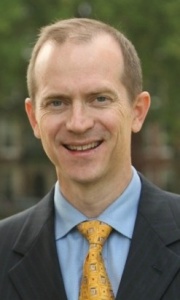Why have so many countries been unable to fully adopt a market economy? The answer is complex, but there are certain basic conditions that must be met for an economy to become free and prosperous. Two that are non-negotiable are private property and the rule of law. Without these a market cannot exist. An educated workforce, low taxes, and minimal regulation are also helpful.
But there is another element that is crucial but often overlooked – it is what has been called “social capital,” specifically the existence of trust. Francis Fukuyama makes this case in his 1995 book Trust: The Social Virtues and the Creation of Prosperity.
Why are trust and social capital so important for economic success? In a modern economy based on ideas, organization, and technology, a key element is human interaction, and here trust is essential. If a culture places importance on virtues that help create prosperity – honesty, fairness, personal responsibility, the importance of hard work, and respect for law – it creates an atmosphere of trust, which engenders spontaneous and voluntary collaboration and creates the conditions where business and entrepreneurship can flourish. If these virtues are not esteemed – or if trust exists only within familial or tribe relationships – it is difficult to organize and create businesses, and there is a greater need for the state to organize and maintain order.
Fukuyama gives the U.S., Germany, and Japan as examples of high trust societies, which explains their large private sectors and much of their economic prosperity. France, Italy, and Latin America on the other hand are “familistic” societies where trust outside of kinship is quite low. A country without a high degree of social capital finds it more difficult to collaborate and organize complex enterprises. Where trust is lacking, the cost of doing business increases and opportunities are lost.
Fukuyama argues that while the neo-classical model of economics is generally correct, it ignores the importance of culture – and I would add religion and a proper vision of the person. But while modern economists often miss this area, the classical economists from the late Spanish scholastics in the fifteenth and sixteenth centuries to Adam Smith understood that a market was composed of human persons acting together. The scholastic theologians and philosophers developed modern market price theory in the context of ethics and moral theology, and while not explicit, Smith presupposed a Christian society of shared values as the foundation of the market economy. His famous butcher, baker, and brewer example, meant to illustrate division of labor and the positive power of self-interest, only works, of course, if the butcher knows that the baker is not a scoundrel. If the baker is not to be trusted, the cost of doing business increases. The butcher has to hire a lawyer to make sure that a contract is right, spend extra time and money reviewing the order, and possibly appeal to the legal authorities for recourse.
All of these are what economists call transaction costs. The higher the transaction costs, the higher the cost of doing business. But there are other losses that are hard to measure but no less real. Low trust and higher transaction costs mean more lost opportunities altogether. Widespread entrepreneurship cannot flourish in a society where trust is lacking because the risk is increased.
Ten years ago, Fukuyama warned that an increasingly individualist and litigious America would weaken its long-term economic potential. A sustainable free market cannot rest on an ethical framework that makes truth relative and exalts individualism. A society composed of “economic man” who cares for nothing but himself and his own consumption cannot long support a free economy. Strong families and a network of voluntary social relationships such as churches and service organizations are needed to maintain the social and organizational fabric of the free society.
Many view America as an individualist country, but as Fukuyama (and Tocqueville before him) correctly points out, this is historically incorrect. While they are anti-statist, they are in fact more communal and collaborative than the French, Italians, or Canadians, engaging in more voluntary associations and private charities. America is a land of entrepreneurship and private enterprise, not because it is composed of atomistic individuals, but because of Americans' propensity to trust one another to solve their problems and not to rely on the state to do it for them. An individualist and relativist America would not long be a prosperous one.
Social capital is also important for business ethics. A culture that values the social virtues results in decreased infringements because there are entire networks of relationships and shared values that frown on such behavior, creating an atmosphere of positive peer influence, which is more effective than the law – an outside authority.
Fukuyama has a powerful argument that requires our attention. Those cultures with high levels of trust have an economic advantage. In other words, economies benefit if the market can rely on the virtue of its participants.







